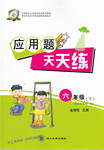题目内容
It is always interesting to visit another country, especially for those who have never traveled a great deal. Foreign 1 can be very educational for 2 if he is interested enough to make preparations beforehand. Learning the language of the new country would be 3 for the traveler, but the benefits of 4 an effort would become obvious immediately 5 his travel. It may not seem 6 to him when he comfortably stays at home, but knowing 7 to order a meal or rent a room is 8 for the newcomer in a strange country. Without 9 the language, it is 10 difficult for the stranger to 11 the people of the new 12 and their customs.
Of course, in our small 13 , it is often possible to 14 someone who understand our 15 language, but this is 16 second-best for the traveler. To be sure, he can see places and things without the 17 of a language, but places and things are not the 18 of any country. To get the greatest 19 from a trip to another country, it is 20 important for the visitor to have an understanding of the language.
1.
[ ]
2.
[ ]
3.
[ ]
4.
[ ]
5.
[ ]
6.
[ ]
7.
[ ]
8.
[ ]
9.
[ ]
10.
[ ]
11.
[ ]
12.
[ ]
13.
[ ]
14.
[ ]
15.
[ ]
16.
[ ]
17.
[ ]
18.
[ ]
19.
[ ]
20.
[ ]
解析:
提示:

 应用题天天练四川大学出版社系列答案
应用题天天练四川大学出版社系列答案
| |||||||||||||||||||||||||||||||||||||||||||||||||||||||||||||||||||||||||||||||||||||||||||||||||||||||||||||||||||||||||||||||||||||||||||||||||||||||||||||||||||||||||||||||||||||||||||||||||||||||||||||||||||||||||||||||||||||||||||||||||||||||||||||||||||||||||||||||||||||||||||
| |||||||||||||||||||||||||||||||||||||||||||||||||||||||||||||||||||||||||||||||||||||||||||||||||||||||||||||||||||||||||||||||||||||||||||||||||||||||||||||||||||||||||||||||||||||||||||||||||||||||||||||||||||||||||||||||||||||||||||||||||||||||||||||||||||||||||||||||||||||||||||
| |||||||||||||||||||||||||||||||||||||||||||||||||||||||||||||||||||||||||||||||||||||||||||||||||||||||||||||||||||||||||||||||||||||||||||||||||||||||||||||||||||||||||||||||||||||||||||||||||||||||||||||||||||||||||||||||||||||||||||||||||||||||||||||||||||||||||||||||||||||||||||